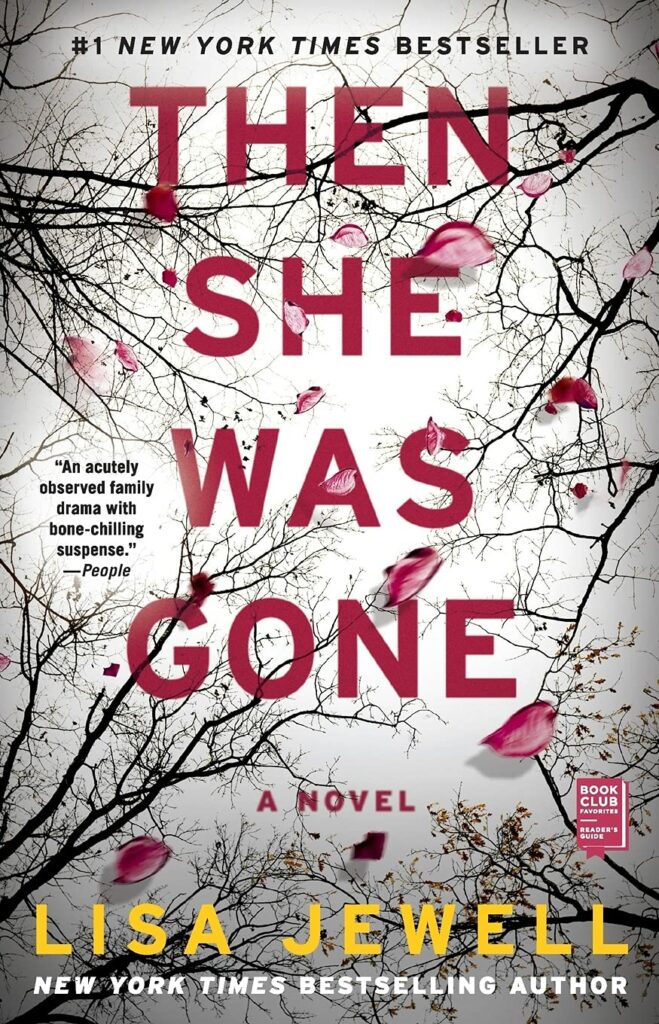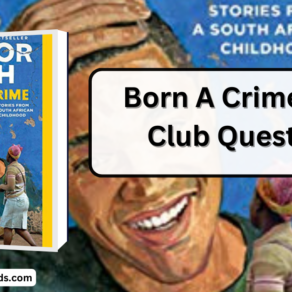In this post, we’re diving into the captivating world of Lisa Jewell’s novel, “Then She Was Gone.” This book, a masterful blend of mystery and emotional depth, has garnered widespread acclaim for its intricate storytelling and compelling character development. As a former teacher and current educational researcher, I’m always intrigued by how novels can open up avenues for deep discussion and reflection, and “Then She Was Gone” is no exception.
Firstly, we’ll explore an extended summary of the novel, providing a comprehensive overview of the plot and its key themes. This summary is designed to give you a solid grasp of the story’s arc, setting the stage for further exploration of its characters and themes.
Speaking of characters, our next section delves into the heart and soul of the novel – its characters. Each character in “Then She Was Gone” is meticulously crafted, adding layers of complexity to the narrative. We’ll examine the main characters, their motivations, and how they contribute to the overarching story, offering insights into Lisa Jewell’s skillful character development.
Quotes from a novel can be powerful, resonating with readers long after they’ve turned the last page. We’ll highlight some poignant quotes from “Then She Was Gone” that encapsulate its themes and the emotional journey of its characters. These quotes serve as perfect touchstones for understanding the essence of Jewell’s narrative.
Lastly, for those of you in book clubs or simply looking for a more interactive reading experience, we’ve compiled a list of thought-provoking book club questions. These questions are designed to spark in-depth discussions, whether you’re gathering with your book club or pondering the novel’s intricacies on your own.
Related: The Family Upstairs Summary
Then She Was Gone Summary
“Then She Was Gone” by Lisa Jewell is a deeply moving and suspenseful novel that explores the harrowing journey of a mother grappling with the unsolved disappearance of her daughter. The story delves into themes of loss, mystery, and the complexities of familial relationships, making it a compelling read for anyone interested in psychological dramas and mysteries.
The novel centers around Laurel Mack, whose life has been overshadowed by the disappearance of her fifteen-year-old daughter, Ellie, ten years prior. Ellie, portrayed as the perfect daughter, vanishes without a trace, leaving her family and community in a state of despair and confusion. The impact of this event on Laurel’s life is profound – her marriage crumbles, and she becomes estranged from her other children, trapped in the relentless grip of not knowing what happened to Ellie.
The narrative takes a captivating turn when Laurel meets Floyd, a charming stranger in a café. Their connection is instant and intense, leading Laurel into a whirlwind romance. The plot thickens when Laurel meets Floyd’s daughters, particularly the youngest, Poppy. Poppy’s striking resemblance to Ellie is unsettling for Laurel, reigniting her quest for answers about her daughter’s disappearance.
Jewell masterfully weaves a tale that oscillates between the past and the present, gradually revealing the circumstances surrounding Ellie’s disappearance. The novel is not just about the mystery of Ellie’s fate; it’s also a poignant exploration of how tragedy can fracture families, the nature of grief, and the longing for closure.
One of the most intriguing aspects of the book is its exploration of the characters’ psychology. Laurel’s character is particularly well-developed, portraying a range of emotions – from despair and detachment to a burgeoning hope and determination to uncover the truth. The character of Floyd is also intriguing, as Jewell skillfully unravels the layers of his identity, leaving the reader questioning his motives and his past.
The narrative is beautifully paced, with Jewell using suspense and well-timed revelations to keep the reader engaged. The book doesn’t just focus on the thriller aspect; it also delves deeply into the emotional and psychological impact of loss and the relentless pursuit of truth.
In conclusion, “Then She Was Gone” is a gripping, emotionally resonant novel that combines elements of mystery, psychological drama, and family saga. Lisa Jewell’s storytelling is both sensitive and suspenseful, making this book a recommended read for those who appreciate novels that are not only thrilling but also provide profound insights into the human experience of loss and resilience. As an educational researcher and a passionate reader, I found this book to be a compelling exploration of the human psyche, offering both a riveting story and a thoughtful examination of its characters’ inner lives.
Then She Was Gone Characters
In “Then She Was Gone” by Lisa Jewell, the characters are intricately crafted, each adding depth and complexity to the story. Here’s a closer look at some of the key characters:
- Laurel Mack: The protagonist of the story, Laurel is a mother dealing with the decade-old unsolved disappearance of her daughter, Ellie. Her character is a poignant portrayal of a woman engulfed in grief and the relentless pursuit of truth. Laurel’s journey through the novel is one of transformation, as she grapples with her loss and the revelations that unfold.
- Ellie Mack: The missing daughter, Ellie, is central to the story’s mystery. Fifteen years old at the time of her disappearance, she was an academically gifted, well-loved girl with a seemingly bright future. Her character is explored through flashbacks and the memories of other characters, painting a picture of a vibrant young life cut short.
- Floyd Dunn: A significant character who Laurel meets in a café, leading to a romantic relationship. Floyd is charming and somewhat mysterious, raising questions about his past and his intentions. His character becomes more complex as the story progresses, especially in relation to his family.
- Poppy Dunn: Floyd’s youngest daughter, who bears a striking resemblance to Ellie. The resemblance is so uncanny that it takes Laurel’s breath away and reignites her quest for answers about Ellie’s disappearance. Poppy’s character is crucial in unraveling the novel’s mystery.
- Hannah and Jake Mack: Laurel’s other children, who also grapple with the loss of their sister in their own ways. Their characters add to the portrayal of a family fractured by tragedy and the different paths grief can take.
- Noelle Donnelly: A less visible but pivotal character in the story. She plays a crucial role in the events leading up to Ellie’s disappearance. Her character is explored retrospectively, revealing key aspects of the mystery surrounding Ellie.
- Paul Mack: Laurel’s ex-husband and father of Ellie, Hannah, and Jake. His character represents another facet of how a family copes with an unimaginable loss. The strain of Ellie’s disappearance impacts his relationship with Laurel and his other children.
Then She Was Gone Quotes
Here are some stand-out quotes from Then She Was Gone:
- “When I read a book it feels like real life and when I put the book down it’s like I go back into the dream.” ― Lisa Jewell, Then She Was Gone
- “A man who can’t love but desperately needs to be loved is a dangerous thing indeed.” ― Lisa Jewell, Then She Was Gone
- “As the father of your children, as a friend, as someone who shared a journey with you and as someone who loves you and cares about you. I don’t need to be married to you to be all those things. Those things are deeper than marriage. Those things are for ever.” ― Lisa Jewell, Then She Was Gone
- “Cooking doesn’t just nurture the recipient, it nurtures the chef.” ― Lisa Jewell, Then She Was Gone
- “May was like the Friday night of summer: all the good times lying ahead of you, bright and shiny and waiting to be lived.” ― Lisa Jewell, Then She Was Gone
- “Stories,” she says, “are the only thing in this world that are real. Everything else is just a dream.” ― Lisa Jewell, Then She Was Gone
- “That was how she’d once viewed her perfect life: as a series of bad smells and unfulfilled duties, petty worries and late bills.” ― Lisa Jewell, Then She Was Gone
- “The blame game could be exhausting sometimes. The blame game could make you lose your mind . . . all the infinitesimal outcomes, each path breaking up into a million other paths every time you heedlessly chose one, taking you on a journey that you’d never find your way back from.” ― Lisa Jewell, Then She Was Gone
- “You know, how you get to forty and you suddenly stop giving a shit about all the stupid things you worried about your whole life.” ― Lisa Jewell, Then She Was Gone
- “She turns off her phone and she rests it on the kitchen counter and feels a wave of relief and weightlessness pass through her. She is unburdened of something she hadn’t even known she was carrying.” ― Lisa Jewell, Then She Was Gone
Related: The Secret History Summary
Then She Was Gone Book Club Questions
“Then She Was Gone” by Lisa Jewell is an excellent choice for a book club discussion, offering a wealth of themes and topics to explore. Here are some engaging discussion questions and points you might consider for your book club:
- Character Analysis: Discuss the character of Laurel Mack. How does her journey throughout the novel reflect the stages of grief? Do you find her transformation by the end of the book believable and satisfying?
- The Theme of Loss: The book heavily focuses on the theme of loss. How do different characters in the book cope with loss, and what does this tell us about the human experience of grief?
- Mystery and Suspense: How does Lisa Jewell use mystery and suspense to drive the narrative? Discuss how the pacing and structure of the story affected your reading experience.
- The Impact of Ellie’s Disappearance: How does Ellie’s disappearance affect the dynamics within the Mack family? Discuss the different ways in which each family member copes with the tragedy.
- Character of Floyd: Floyd is a complex character whose motives and background are slowly revealed. What were your initial impressions of Floyd, and how did they change throughout the novel?
- The Role of Coincidence: There are several coincidences that drive the plot forward. Do you think these coincidences were believable? How do they contribute to the overall story?
- Psychological Elements: Discuss the psychological aspects of the novel. How does Jewell explore the psyche of her characters, particularly Laurel and Floyd?
- The Ending: What are your thoughts on the book’s resolution? Were you satisfied with how the mysteries were unraveled and concluded?
- Themes of Hope and Resilience: Despite its focus on loss and grief, the novel also touches on hope and resilience. How do these themes manifest in the story?
- Comparisons to Other Works: How does “Then She Was Gone” compare to other books in the mystery or thriller genre? Are there any other books or authors that come to mind while reading this novel?
- Author’s Style: Discuss Lisa Jewell’s writing style. How does her approach to storytelling affect the themes and characters in the book?
- Moral and Ethical Questions: The book raises several moral and ethical questions. Were there any actions or decisions made by the characters that you found particularly challenging or thought-provoking?
Final thoughts
In closing, “Then She Was Gone” is a novel that captivates and challenges its readers. It’s a testament to Lisa Jewell’s talent as a storyteller and her ability to create a world that is both haunting and deeply moving.
The novel’s exploration of themes such as loss, grief, and the enduring hope of finding closure resonates deeply. It’s a reminder of how literature can not only entertain but also offer insights into the complexities of the human condition.
For educators, parents, and anyone interested in the intersection of literature and psychology, “Then She Was Gone” offers a wealth of material to ponder and discuss. The book club questions provided here are just a starting point for the rich conversations that this book can inspire.







